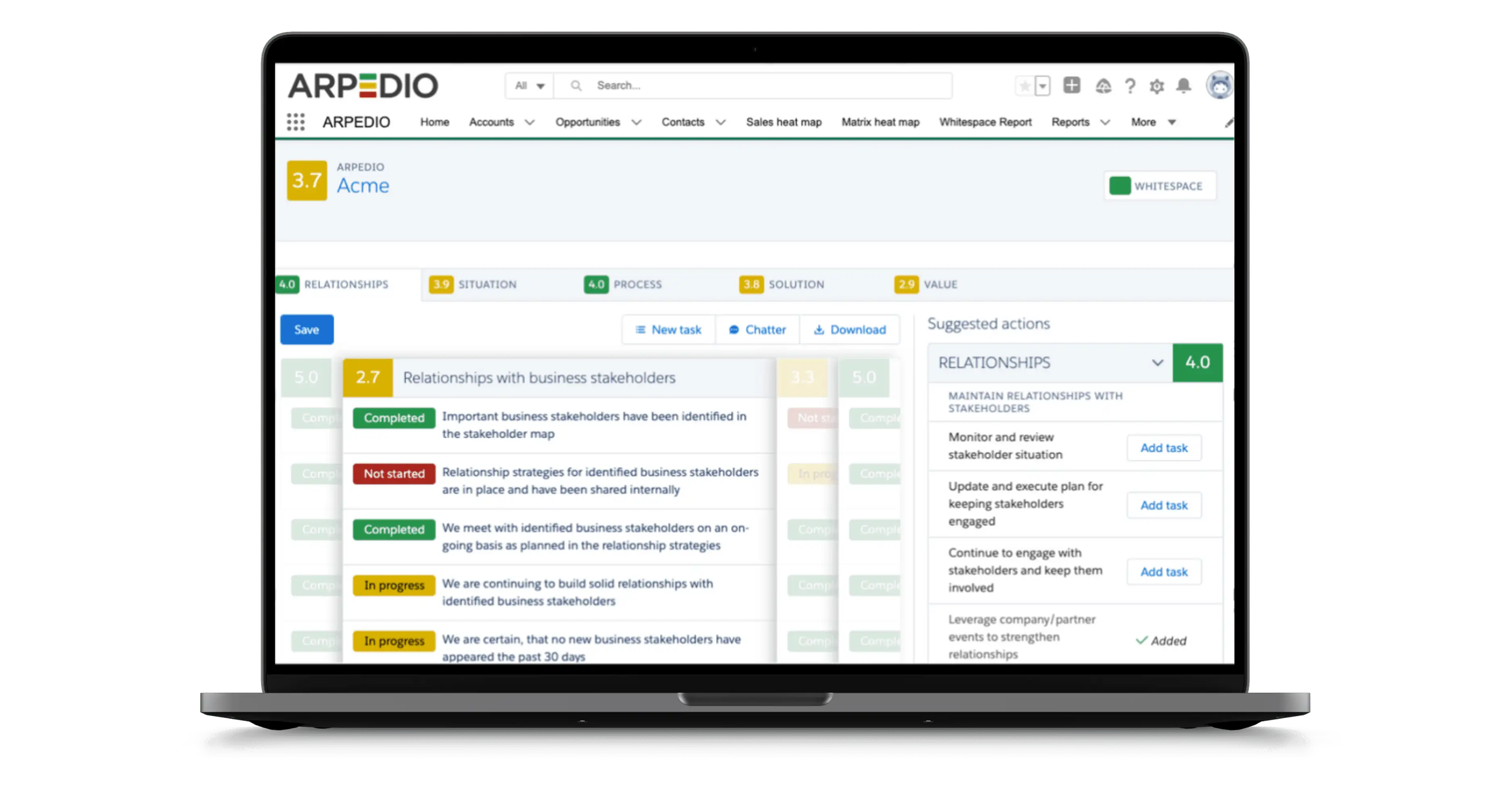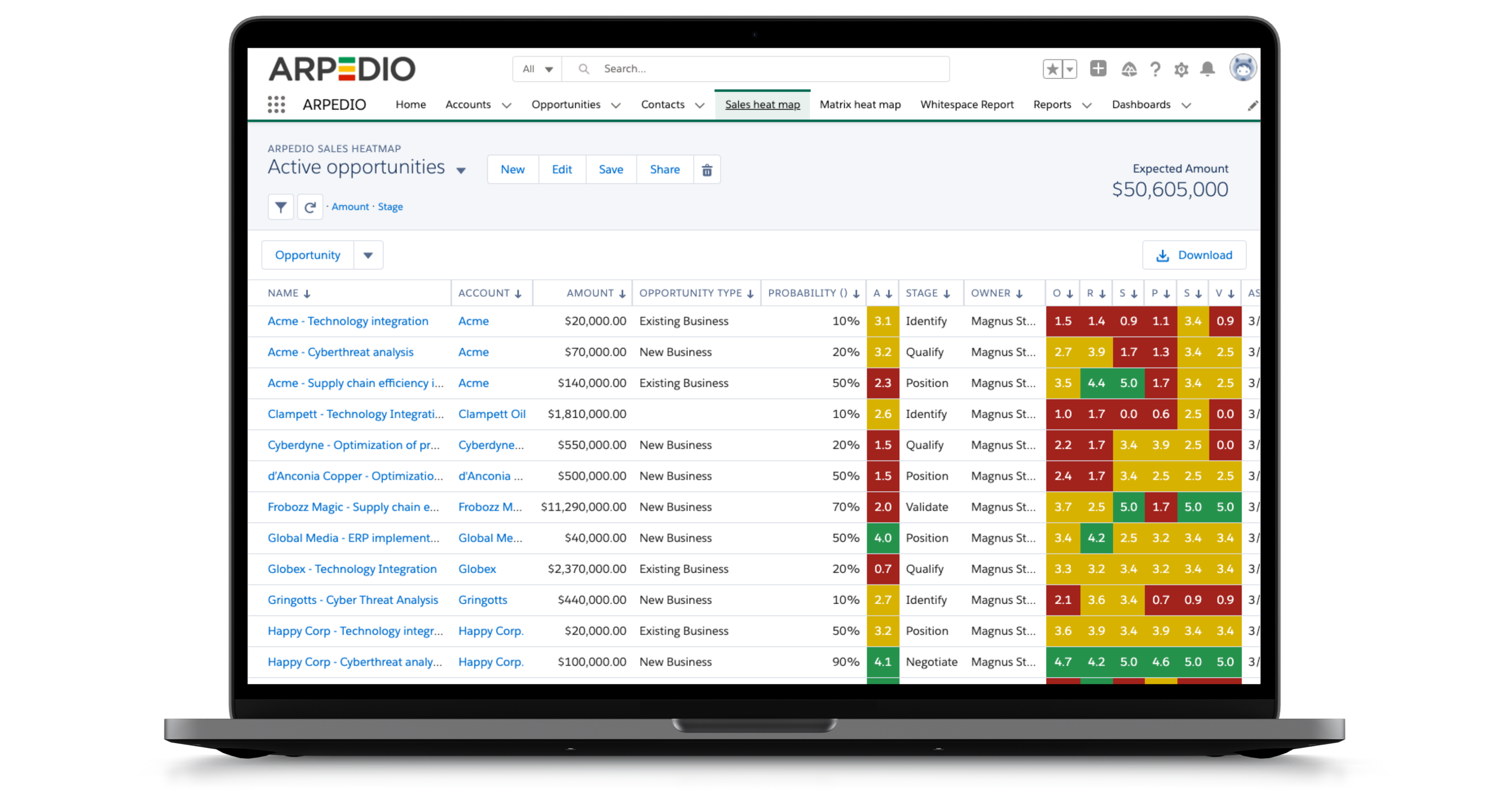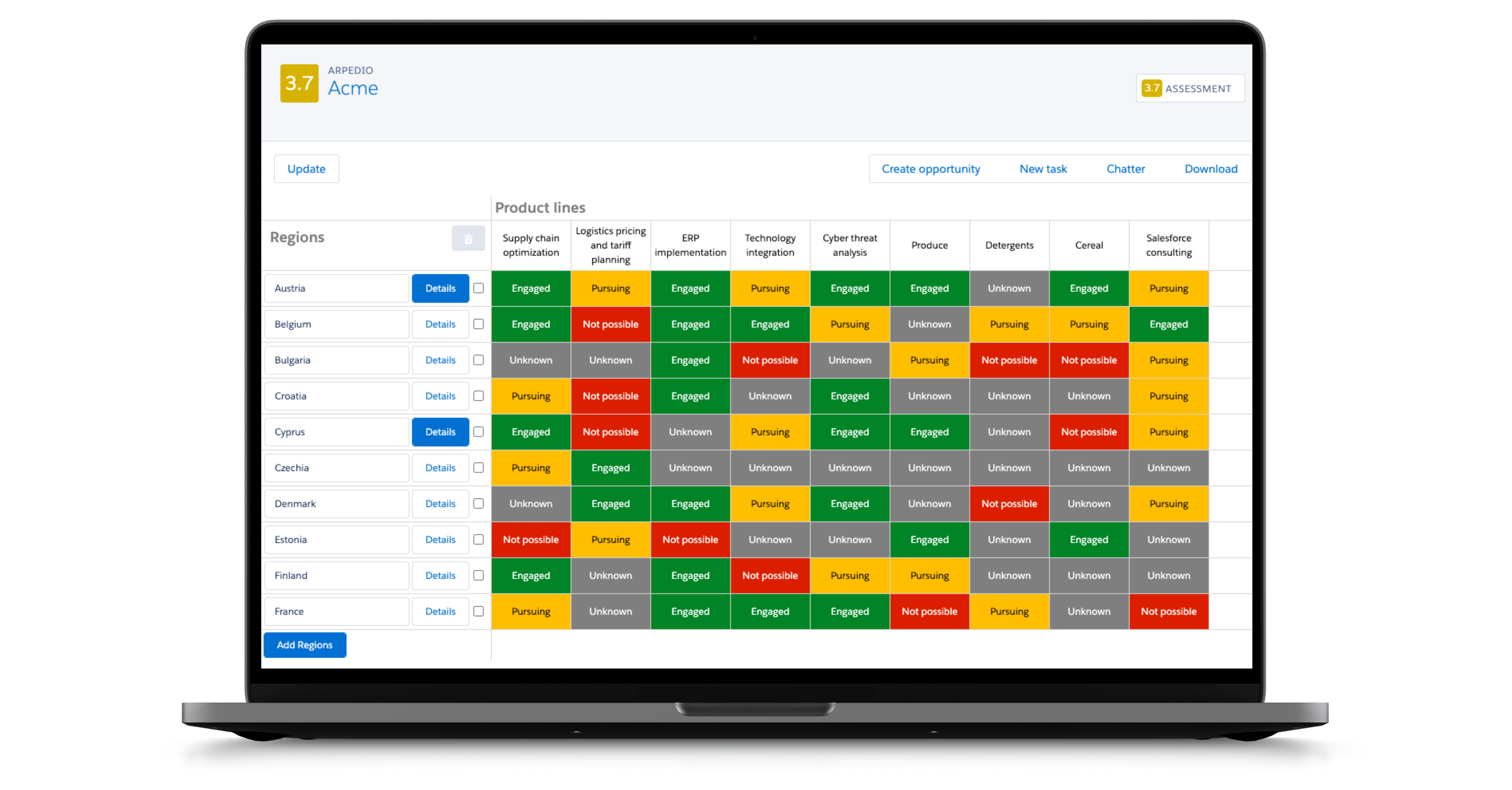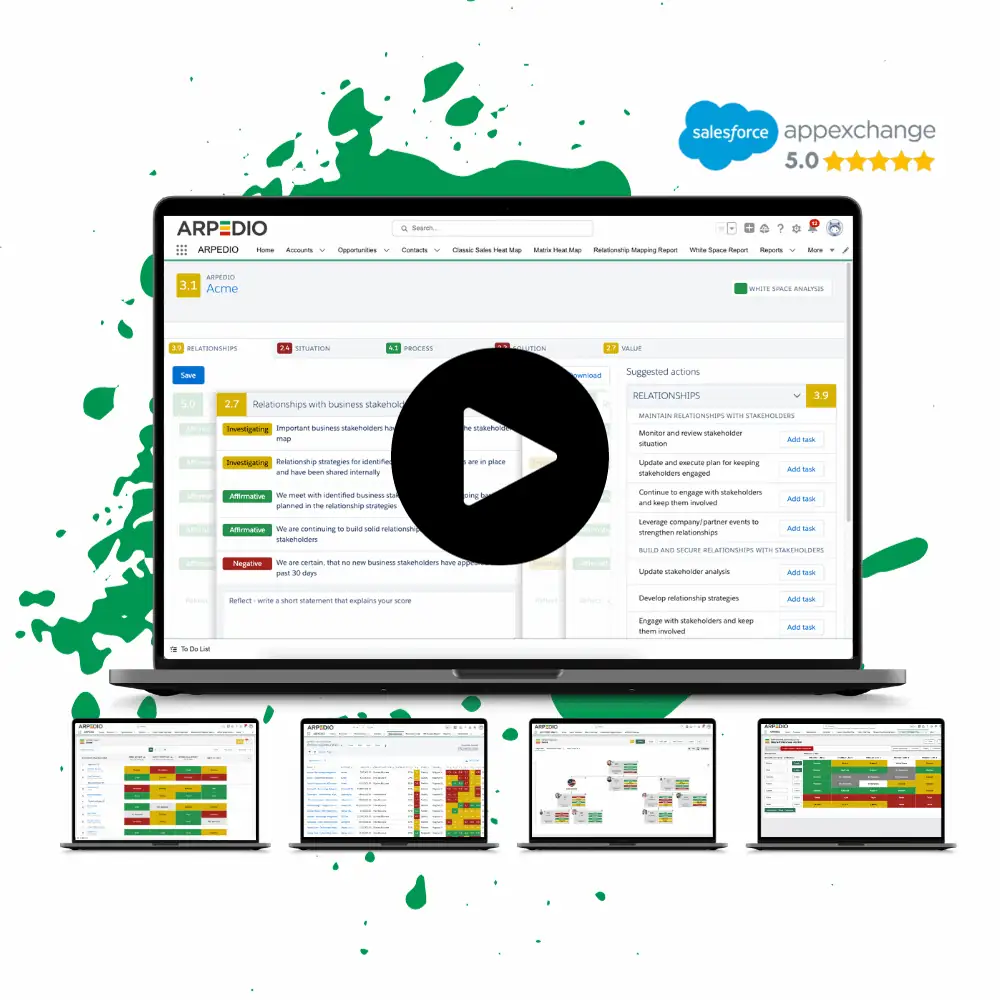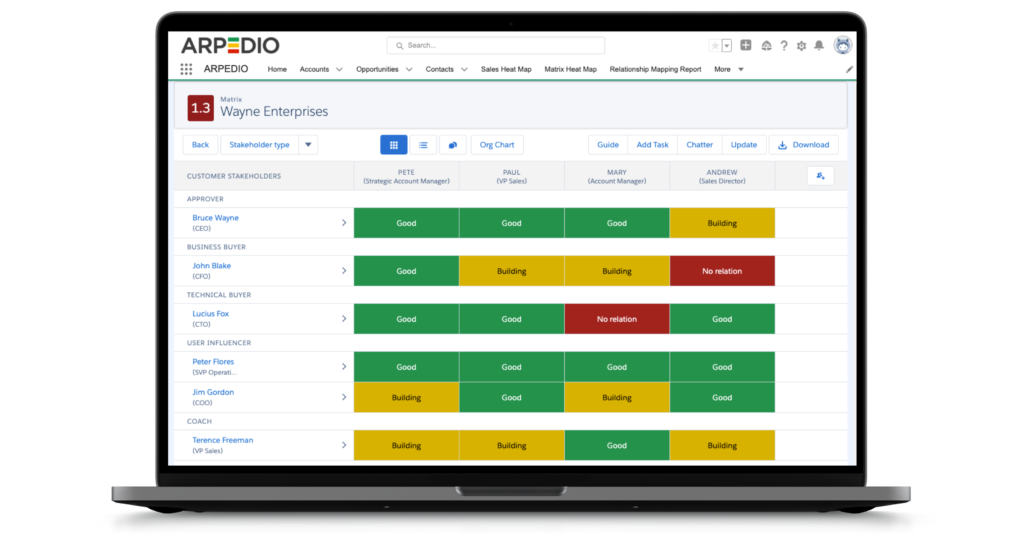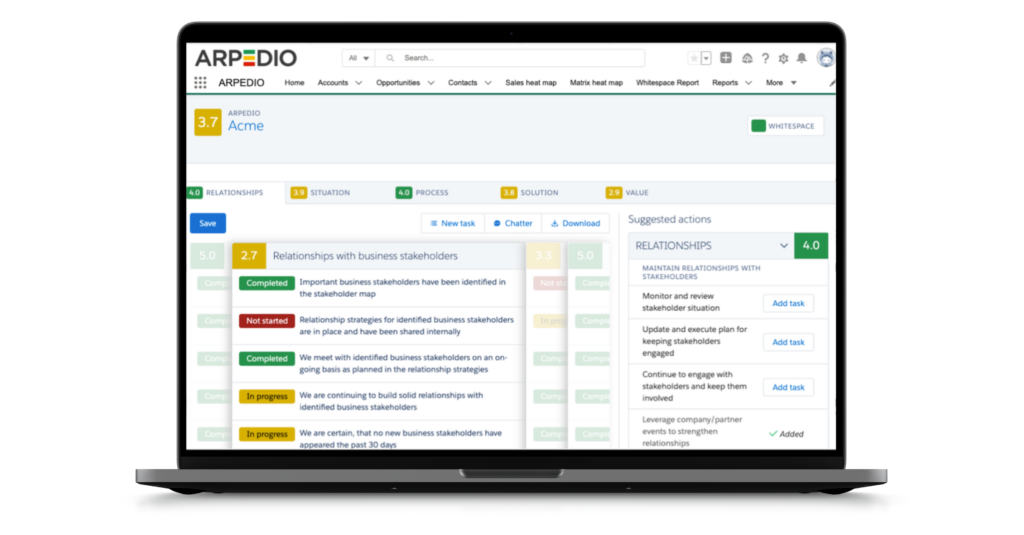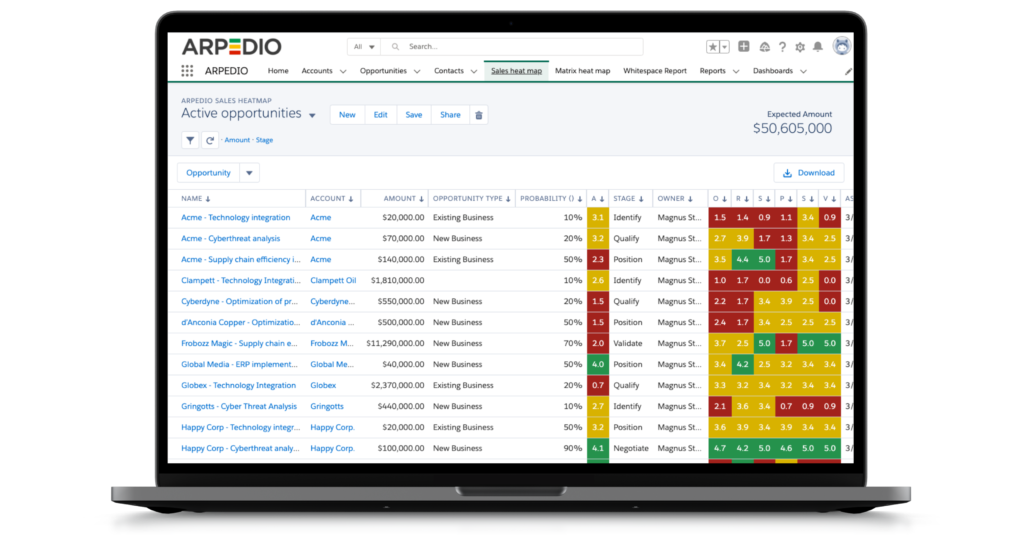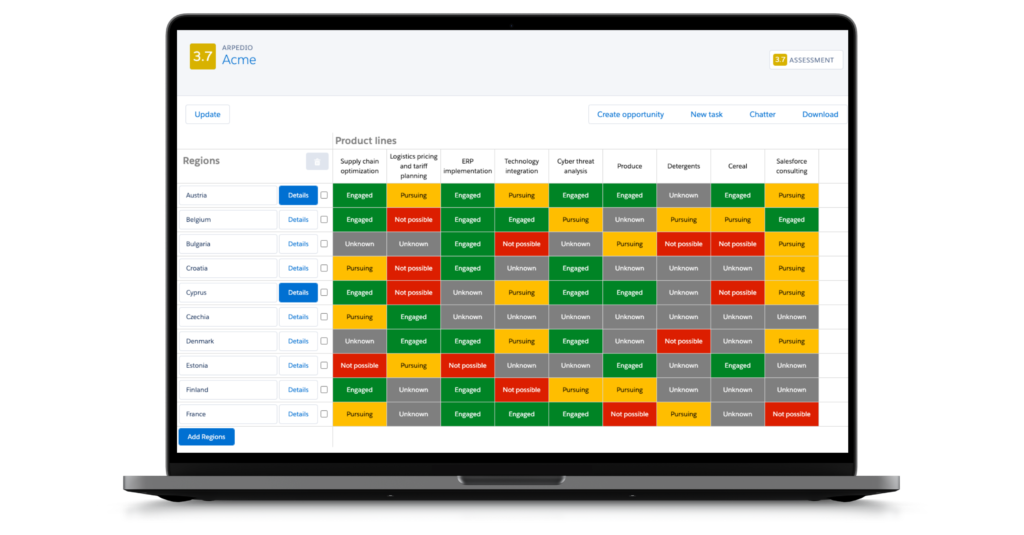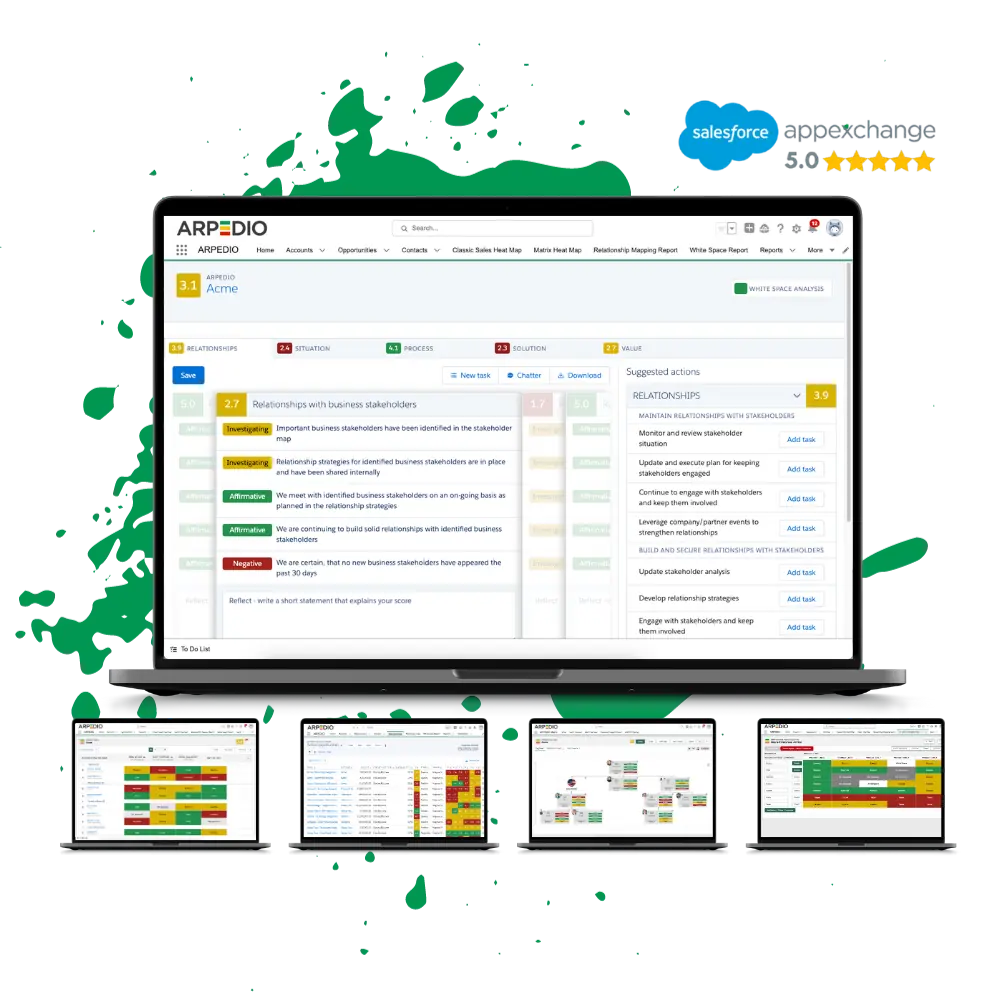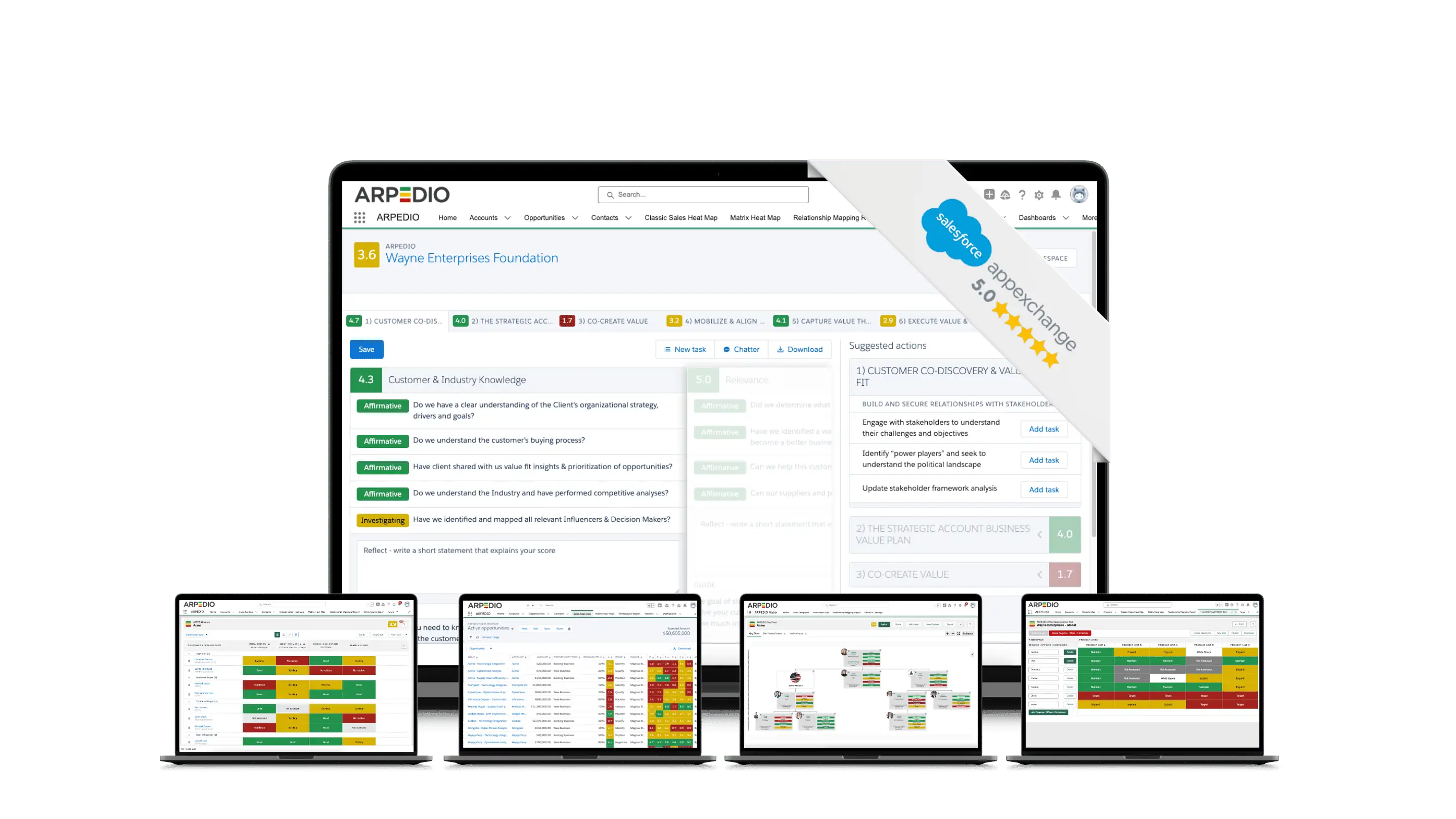Account-based selling technologies are not just a flash in the pan – they’re here to stay– and if your company hasn’t already invested in these cutting-edge tools, now is the time. Keep reading to discover the numerous benefits of account-based selling technologies and how they can revolutionize your sales strategy, help you stay ahead of the competition and achieve remarkable results.
Table of Contents
Introduction to Account-Based Selling Technologies
In today’s highly competitive business landscape, sales professionals are constantly seeking innovative strategies to stand out from the crowd and maximize their revenue potential. Enter account-based selling technologies—a cutting-edge approach that has revolutionized the way B2B sales teams operate. By leveraging data-driven insights, personalized engagement, and streamlined workflows, account-based selling technologies have emerged as a game-changer for modern sales, empowering businesses to focus their efforts on high-value accounts with remarkable precision.
In this blog post, we will delve into the realm of account-based selling technologies, unraveling the immense benefits they offer and exploring the strategies that can catapult your sales team to unprecedented success. Whether you’re a sales executive looking to boost your team’s performance or a business owner seeking innovative ways to accelerate growth, this comprehensive guide will equip you with the knowledge and tools necessary to navigate the world of account-based selling technologies with confidence.
From powerful CRM integrations to advanced analytics and automation tools, we’ll uncover the key components of account-based selling technologies that can transform your sales process. You’ll discover how these technologies enable you to identify and target high-potential accounts, deliver personalized experiences that resonate with decision-makers, and forge lasting customer relationships built on trust and value.
Moreover, we’ll address the common challenges faced by sales teams and demonstrate how account-based selling technologies can provide effective solutions to overcome them. Whether it’s aligning marketing and sales efforts, breaking down organizational silos, or adapting to changing buyer behaviors, you’ll learn how to leverage these technologies to overcome obstacles and thrive in a dynamic business environment.
Get ready to unlock the full potential of account-based selling technologies and revolutionize your sales approach. Let’s dive in and discover how these transformative technologies can elevate your sales team’s performance and pave the way for unparalleled success in the digital age.
What is Account-Based Selling Technologies?
Account-Based Selling (ABS) Technologies refer to the set of tools and software solutions designed to enable and enhance the practice of account-based selling. Account-based selling is a strategic approach used by sales teams to target and engage specific high-value accounts or organizations.
ABS technologies provide sales teams with the necessary tools and capabilities to identify, prioritize, and engage key accounts effectively. Think of it this way: ABS technologies are like having a personalized sales spy agency at your disposal. They gather valuable intel on your target accounts, helping you understand their pain points, preferences, and even their favorite pizza toppings (okay, maybe not that last one). Armed with this knowledge, you can prioritize your leads and focus your attention where it matters most, not to mention tailor your sales pitches and strategies to hit the bullseye every time.
ABS technologies also provide you with some nifty automation powers. They can automate repetitive tasks like sending personalized emails, scheduling follow-ups, and even creating customized proposals. It’s like having a magical sales genie that takes care of the boring stuff, leaving you with more time to dazzle your prospects with your winning personality.
But wait, there’s more! ABS technologies often come with cool collaboration features too. They allow your sales team to work together seamlessly, like a well-oiled machine. You can share notes, coordinate strategies, and keep track of everyone’s progress. It’s like having a virtual sales team huddle, minus the sweaty armpits and questionable team chants.
So there you have it, my friend. Account-based selling technologies are like your secret weapons, your spy gadgets, and your magical sidekicks all rolled into one. With their help, you’ll be slaying those sales targets, one account at a time.
Examples of Account-Based Selling Technologies
Account-based selling technologies typically include a combination of data analytics, automation, and communication tools that help sales professionals personalize their approach and engage with decision-makers within target accounts. Below, we have listed some of the most common technologies that support account-based selling.
- Account Selection and Targeting Tools: These tools help identify and prioritize target accounts based on various criteria, such as company size, industry, revenue, or other relevant factors. They leverage data analytics and predictive modeling to determine the best-fit accounts for sales efforts.
- Data and Analytics Tools: These tools provide sales teams with access to comprehensive data about target accounts, including firmographics, technographics, contact information, and behavioral insights. They help sales professionals gain a deeper understanding of their prospects and make data-driven decisions.
- Sales Engagement Platforms: These platforms facilitate personalized and targeted communication with key decision-makers within target accounts. They often include features like email automation, sales cadence management, personalized content creation, and tracking capabilities to enhance engagement and response rates.
- CRM (Customer Relationship Management) Systems: CRM systems–like Salesforce– serve as the central hub for managing and tracking customer interactions and relationships. They provide a unified view of account data, communication history, and deal progress, enabling sales teams to collaborate and track account-based selling efforts effectively.
- Marketing Automation Tools: While primarily used by marketing teams, marketing automation tools can also support account-based selling efforts. They enable the creation and delivery of personalized marketing campaigns targeted at specific accounts or personas, aligning marketing and sales activities.
- Predictive Analytics and Artificial Intelligence (AI): These technologies leverage machine learning algorithms to analyze historical data, identify patterns, and predict future outcomes. They help sales teams prioritize accounts, determine the best engagement strategies, and forecast revenue potential.
Overall, account-based selling technologies play a crucial role in streamlining and optimizing the account-based selling process, enabling sales teams to focus their efforts on high-value accounts, personalize their approach, and increase the chances of success in closing deals with key customers.
Benefits of Account-Based Selling Technologies
Account-based selling technologies offer a multitude of benefits that can transform your sales approach and drive remarkable results. By leveraging these cutting-edge technologies, you can stay ahead of the competition, optimize your resources, and achieve unprecedented success in today’s highly competitive business landscape. Let’s dive into just a few of the advantages account-based selling technologies can bring to modern sales teams.
- Enhanced Personalization: Account-based selling technologies enable sales teams to personalize their outreach and engagement efforts. By gathering detailed insights about target accounts, such as their pain points, preferences, and challenges, you can tailor your messaging and offerings to resonate with their specific needs. This personalized approach increases the likelihood of capturing the attention and interest of key decision-makers, resulting in higher conversion rates and improved customer satisfaction.
- Precise Targeting: With account-based selling technologies, you can identify and focus on high-value accounts that align with your ideal customer profile. These tools leverage data analytics and artificial intelligence to analyze various factors, including company size, industry, revenue, and past purchasing behavior, to pinpoint the most promising prospects. By prioritizing your efforts on these target accounts, you optimize your resources and maximize your chances of closing lucrative deals.
- Efficient Collaboration: Account-based selling technologies foster seamless collaboration between sales, marketing, and customer success teams. These tools provide a centralized platform for sharing information, tracking interactions, and coordinating strategies. By aligning efforts across departments, you create a unified customer experience and avoid duplication of efforts. Collaboration leads to improved efficiency, better communication, and ultimately, higher sales success rates.
- Improved Sales Funnel Efficiency: By leveraging account-based selling technologies, you can streamline your sales funnel and reduce wasted efforts. These tools provide insights into the entire customer journey, allowing you to identify bottlenecks, optimize touchpoints, and refine your sales process. With a clearer understanding of each account’s progression through the funnel, you can take proactive steps to accelerate the sales cycle, shorten decision-making timelines, and drive revenue growth.
- Measurable Results and ROI: One of the greatest advantages of account-based selling technologies is the ability to measure and track the effectiveness of your sales efforts. These tools provide comprehensive analytics and reporting features, allowing you to monitor key performance indicators (KPIs), track conversion rates, and measure return on investment (ROI). By gaining actionable insights from data, you can continuously refine your strategies, allocate resources more efficiently, and drive continuous sales growth.
Implementing Account-Based Selling Technologies: Best Practices
Account-based selling technologies empower sales teams to focus on high-value accounts, personalize their outreach efforts, and optimize the sales process for maximum effectiveness. And that’s why implementing account-based selling technologies can significantly impact the success of your sales strategy. But what does it actually take to get to the promised land? We’ll tell you! Here are some best practices to consider when implementing account-based selling technologies:
- Target Account Selection and Prioritization: Account-based selling technologies help identify and prioritize high-value target accounts that align with your ideal customer profile. These tools leverage data analytics and predictive algorithms to assess various factors such as company size, revenue potential, historical buying behavior, and fit with your product or service offering. By focusing on the most promising accounts, sales teams can optimize their efforts and improve conversion rates.
- Define Clear Goals and Objectives: Clearly define your goals and objectives for implementing account-based selling technologies. Whether it’s increasing revenue, targeting specific accounts, or improving conversion rates, having well-defined objectives will guide your implementation strategy and help measure success.
- Align Sales and Marketing Teams: Successful account-based selling requires close collaboration between sales and marketing teams. Ensure that both teams are aligned on the goals, target accounts, messaging, and tactics. Establish regular communication channels and shared metrics to foster collaboration and maximize the impact of your account-based selling efforts. Alignment between sales and marketing enables consistent messaging and a unified customer experience.
- Identify Ideal Customer Profiles (ICPs): Clearly define your ideal customer profiles based on factors such as industry, company size, revenue, and buying behavior. This will help you identify the most promising accounts to target with your account-based selling efforts. Regularly review and refine your ICPs as you gain insights and adjust your strategy.
- Leverage Data and Analytics: Account-based selling technologies provide valuable data and analytics capabilities. Leverage these insights to inform your decision-making process. Analyze data on target accounts, engagement rates, conversion rates, and revenue generated to identify areas for improvement and refine your account-based selling strategies.
- Personalize Outreach and Content: Personalization is key in account-based selling. Leverage the data and insights you have about target accounts to personalize your outreach and content. Craft tailored messages that address their pain points and goals. Use dynamic content and personalized assets to create a unique experience for each target account. This level of personalization enhances engagement and increases the likelihood of conversion.
- Implement Multi-channel Engagement: Use a multi-channel approach to engage with target accounts. Leverage various channels such as email, phone calls, social media, personalized landing pages, and targeted advertising to reach decision-makers and influencers. Ensure consistent messaging and a cohesive experience across all touchpoints.
- Continuously Test and Optimize: Implementing account-based selling technologies is an ongoing process. Continuously test and optimize your strategies and tactics. A/B test different messaging, content, and channels to identify what resonates best with your target accounts. Analyze the results and make data-driven adjustments to improve your account-based selling efforts.
- Train and Educate Sales Teams: Provide comprehensive training and education to your sales teams on how to effectively use the account-based selling technologies. Ensure they understand the goals, strategies, and best practices associated with account-based selling. Regularly update their knowledge and provide ongoing support to maximize their effectiveness.
- Measure and Track Results: Establish key performance indicators (KPIs) to measure the success of your account-based selling initiatives. Track metrics such as engagement rates, conversion rates, pipeline velocity, and revenue generated from target accounts. Regularly analyze the data and use it to evaluate the impact of your efforts and make informed decisions.
- Account-Based Marketing: Some account-based selling technologies incorporate account-based marketing capabilities. This enables sales teams to target specific accounts with personalized ads across various digital advertising platforms. Account-based advertising helps increase brand awareness, engagement, and recognition among target accounts, further enhancing the overall effectiveness of the account-based selling approach.
- Foster a Culture of Collaboration and Adaptability: Encourage a culture of collaboration and adaptability within your sales organization. Embrace feedback, learn from successes and failures, and continuously adapt your strategies. Encourage open communication and knowledge-sharing to leverage the collective expertise of your teams.
By following these best practices, you can maximize the benefits of account-based selling technologies and drive remarkable results for your sales organization.
ARPEDIO’s Account-Based Selling Platform
Conclusively, there is no doubt that it is high time to invest in account-based selling technologies and include them in your tech stack if you haven’t done so already. Therefore, allow us to take a second to introduce ARPEDIO’s account-based selling platform.
ARPEDIO’s platform provides deep account intelligence, allowing B2B companies to gain a comprehensive understanding of their target accounts. The platform helps B2B companies identify and prioritize high-value accounts based on various criteria such as revenue potential, industry fit, and past buying behavior. Moreover, ARPEDIO’s platform fosters collaboration and alignment between sales and marketing teams. It provides a centralized platform for sharing information, tracking interactions, and coordinating strategies. This way, the platform streamlines the sales process by providing insights into the entire customer journey. B2B companies can identify bottlenecks, optimize touchpoints, and refine their sales approach based on data-driven insights. Last but not least, ARPEDIO’s account-based selling platform offers conprehensive analytics and reporting features, enabling B2B companies to measure and track the effectiveness of their account-based selling efforts. Sales teams can monitor key performance indicators (KPIs), track conversion rates, and measure return on investment (ROI). This data-driven approach empowers companies to make informed decisions, continuously refine their strategies, and allocate resources more efficiently for maximum results.
In summary, investing in ARPEDIO’s account-based selling platform equips B2B companies with the tools and capabilities needed to enhance their sales efforts significantly. With comprehensive account insights, targeted prioritization, collaborative alignment, a streamlined sales process, and measurable ROI, companies can stay ahead of the competition, engage with their target accounts more effectively, and achieve remarkable sales success.
#1 Account-Based Selling Platform
Powerful alone. Superior together.
Boost win rates and reduce sales cycles. Enhance forecast accuracy.



